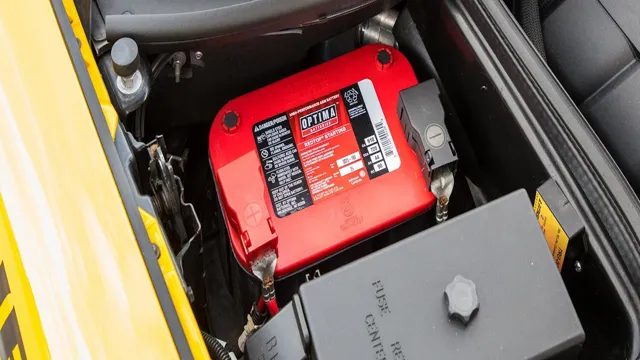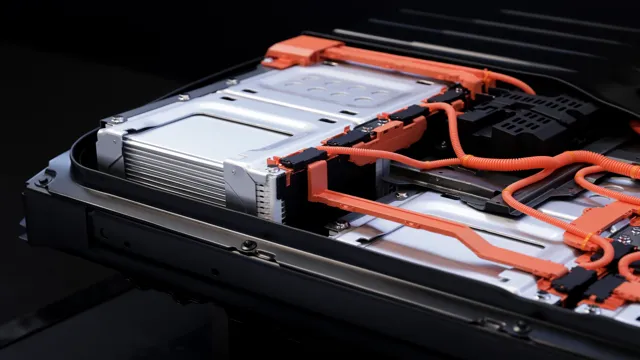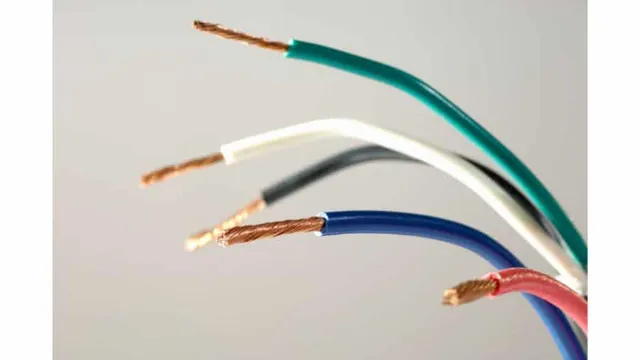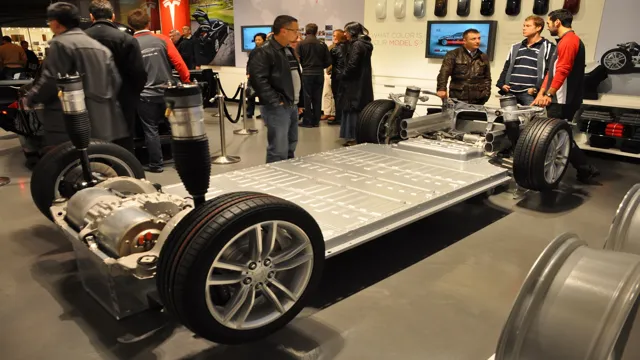Chilly Temperatures? No Problem! Discover How Electric Car Batteries Perform in Cold Weather
Have you ever wondered how electric cars perform in cold weather? As temperatures drop, many EV owners worry about how their cars will fare on frosty mornings. While it’s true that cold weather can affect electric car performance, it’s not all doom and gloom. In fact, many EVs have features that make them well-suited to chilly weather.
In this blog post, we’ll take a closer look at how electric cars stack up against cold weather, and what you need to know to stay warm and comfortable while driving your electric car in the winter.
How Cold Weather Affects Electric Car Batteries
Electric car batteries can be affected by extreme cold weather conditions. When temperatures drop, the battery’s chemical reaction rates slow down, reducing its ability to produce energy. This means that an electric car’s range may be reduced, and the battery may even shut down completely in colder temperatures.
Additionally, the cold weather can cause the battery’s internal resistance to increase, which can lead to a reduction in charging efficiency and overall battery lifespan. To combat this, manufacturers have designed cold weather packages that include battery heaters and insulation to help keep the battery at optimal temperatures. It is also recommended to park and charge your electric vehicle indoors during colder months to maximize battery performance.
Temperature Sensitivity of Lithium-ion Batteries
Lithium-ion batteries are known for their superior performance in electric cars. However, extreme cold temperatures can affect their functionality. This is because lower temperatures slow down the chemical reactions within the battery, reducing its capacity and overall performance.
In cold weather, the lithium-ion battery may lose up to 40% of its capacity, making it difficult for electric cars to cover long distances on a single charge. This is why electric car owners need to pay close attention to battery temperature and storage during winter months. Keeping the battery warm through regular use and parking in enclosed spaces can help prevent significant loss of its capacity.
Additionally, some car manufacturers provide heating systems for batteries to keep them functioning optimally, even in cold weather conditions. By implementing these practices, electric car owners can mitigate the effects of cold weather on their lithium-ion batteries and ensure they continue to drive without any issues.

Charging Challenges in Cold Weather
When it comes to electric cars, cold weather can pose some challenges to the battery. The first issue is that cold temperatures can cause the battery’s range to decrease. In fact, some electric car owners have reported a reduction in range of up to 40% in extreme cold weather conditions.
Another issue is that cold weather can slow down the charging process, which can be frustrating for drivers who rely on quick charging times. Additionally, if the battery is not preheated before charging, it can cause damage to the battery itself. This is why many electric car manufacturers recommend keeping the car in a garage during cold weather and preheating the battery before charging.
Overall, cold weather can make it more challenging to charge an electric car, but with proper precautions and planning, it is still possible to enjoy the benefits of emission-free driving, even in the coldest of climates.
Best Practices for Electric Cars in Cold Weather
If you’re driving an electric car during the cold winter months, there are some simple best practices you can follow to ensure your battery stays healthy and your range is optimized. Firstly, it’s important to keep your car plugged in whenever possible, even if you’re not actively charging it. This will help keep the battery at a stable temperature and prevent any unnecessary drain.
It’s also a good idea to preheat your car’s cabin while it’s still plugged in, as this will use grid power rather than depleting your battery. Another tip is to avoid using accessories like the heated seats or defrost until the battery has warmed up, as these can put additional strain on the system. Finally, be mindful of your driving habits – accelerating slowly, maintaining a steady speed, and avoiding excessive idling can all help conserve energy and maximize your range.
Overall, by taking a few simple steps to care for your electric car’s battery in cold weather, you can enjoy worry-free driving all winter long.
Battery Warmers and Insulators
Electric cars face a unique set of challenges in cold weather, particularly when it comes to battery performance. To keep your EV running smoothly, it’s important to utilize battery warmers and insulators. These accessories work together to maintain the optimal temperature range for your battery, which can help extend its lifespan and improve overall performance.
Battery warmers help to heat up the pack, allowing it to reach its optimal temperature range more quickly. Meanwhile, insulators help to keep the heat inside the pack, reducing the amount of energy needed to maintain the desired temperature range. By using these best practices for electric cars in cold weather, you’ll ensure that your vehicle is running at its best no matter what the temperature outside may be.
Preheating the Cabin and Battery
As winter approaches, it’s important to make sure your electric car is prepared for the colder weather. When it comes to preheating the cabin and battery, there are a few best practices to follow. First, it’s recommended to use a dedicated electric car charger to preheat the battery.
This not only warms up the battery for better performance in the cold, but it also helps to extend its life. Additionally, preheating the cabin with the car’s app or remote start feature while it’s still plugged in can help save energy, as the car will use the power from the grid instead of draining the battery. It’s also a good idea to set a timer for the preheating to avoid overusing energy.
Keeping these tips in mind can help ensure your electric car is ready to take on the winter weather.
Monitoring Charge Levels and Range
When it comes to electric cars in cold weather, monitoring the charge levels and range is critical. Since cold temperatures can negatively affect battery performance, it’s important to keep an eye on these metrics to prevent getting stranded on the side of the road. One best practice for driving in cold weather is to preheat the car before hitting the road.
This can be done using the car’s app or timer feature, which will warm up the battery, making it more efficient when it’s time to drive. Additionally, keeping the car plugged in while parked will help maintain the battery’s charge level and prevent it from draining too quickly. By paying attention to these small details, electric car owners can have a more stress-free and reliable driving experience in cold weather.
So, if you’re an electric car owner or considering purchasing one, be sure to follow these best practices and stay on top of your car’s charge levels and range during the winter months.
Top Electric Cars for Cold Weather Driving
Electric car battery performance in cold weather is a concern for many drivers. The good news is that there are several electric cars that are well-suited for frigid temperatures. The Tesla Model 3, for example, has an advanced battery management system that ensures optimal battery efficiency in cold weather conditions.
The Chevrolet Bolt also has a thermal management system that helps maintain battery temperature, even in extreme cold. The Nissan Leaf has a heat pump system that can warm up the car’s interior more quickly than traditional heating systems, helping to conserve battery power. And lastly, the Audi e-tron has a pre-conditioning feature that allows drivers to warm up the car’s battery and interior before hitting the road, ensuring maximum battery range and optimal driving performance.
With these cold-weather electric car options, drivers can confidently hit the road, even in the most frigid temperatures.
Tesla Model S and Model X
When it comes to electric cars, winters can put a damper on their performance. But fear not! The Tesla Model S and Model X are top-tier electric vehicles that can handle cold weather like pros. Equipped with advanced battery technology and dual-motor all-wheel drive systems, these cars are designed to provide maximum performance and efficiency even in harsh weather conditions.
The Model S has a range of up to 402 miles, while the Model X can go up to 371 miles on a single charge, making them reliable for long journeys. With features like seat and steering wheel heating, climate control, and smart air suspension, you can stay comfortable while conquering the cold. So, whether you’re commuting to work or heading out on a winter road trip, the Tesla Model S and Model X are great options for electric cars that can handle the cold with ease.
Chevrolet Bolt
Electric cars have always posed a challenge when it comes to cold weather. But with advancements in technology, some models have come out on top in terms of winter driving. One of these is the Chevrolet Bolt, a fully electric vehicle that can go up to 259 miles on a single charge.
The Bolt has a heated steering wheel and heated front seats, which make a significant difference when driving in below-freezing temperatures. Another impressive feature of the Bolt is its Regen on Demand system, which lets you slow down and capture energy to recharge the battery without having to hit the brakes. Whether you live in a snowy area or just want an electric car that can handle winter conditions, the Chevrolet Bolt is definitely worth considering.
The Future of Electric Car Batteries in Cold Weather
Electric car batteries can be affected by cold weather, resulting in reduced efficiency and range. However, significant advancements have been made in recent years to combat this issue. One solution is the use of battery heating systems, which warm the battery to optimal working temperatures.
Another approach is the use of specialized battery chemistries that can perform better in colder climates. Manufacturers are also focusing on improving thermal management systems to regulate the temperature of the battery, preventing overheating in warmer climates and keeping it warm in colder climates. While cold weather still poses a challenge for electric car batteries, these improvements show a promising future for electric vehicles in all climates.
Conclusion
In conclusion, electric car batteries in cold weather are like cold-shocked caffeine addicts. They may take a little longer to get going, and they may not perform at their best, but given time and a warm environment, they will perk up and perform just as well as they do in ideal conditions. So if you’re an eco-conscious driver considering an electric vehicle, don’t let concerns about cold weather put a damper on your enthusiasm.
With a little planning and patience, you and your electric car battery can weather any storm!”
FAQs
How does cold weather affect the performance of an electric car battery?
Cold weather can decrease the efficiency of an electric car battery, as the chemical reactions that produce electricity slow down in low temperatures. This can lead to shorter driving ranges and longer charging times.
Are there any specific measures electric car drivers should take in cold weather to extend the battery life?
Yes, there are several things drivers can do to help their electric car batteries last longer in cold weather. These include preheating the car while it’s still plugged in, reducing speed and acceleration, minimizing use of cabin heat or defrost, and storing the car in a heated garage when possible.
Can extreme cold damage an electric car battery?
While extreme cold is unlikely to permanently damage an electric car battery, it can reduce its overall lifespan and decrease its capacity. For this reason, it’s important to take steps to protect the battery in very cold weather.
Do all electric car batteries perform the same in cold weather?
No, the performance of electric car batteries can vary depending on the make and model, as well as the type of battery used. Some batteries are designed to handle cold weather better than others, so it’s important to research battery performance before making a purchase.





